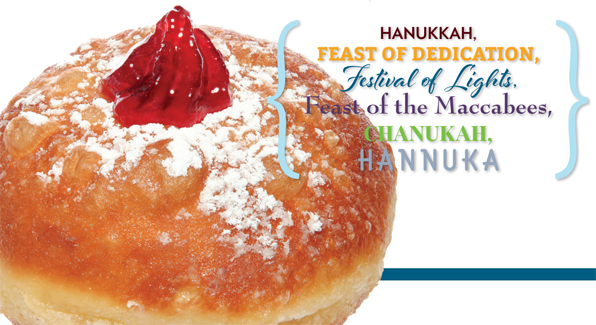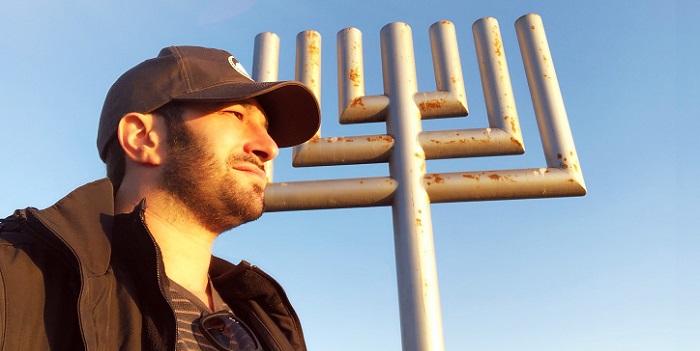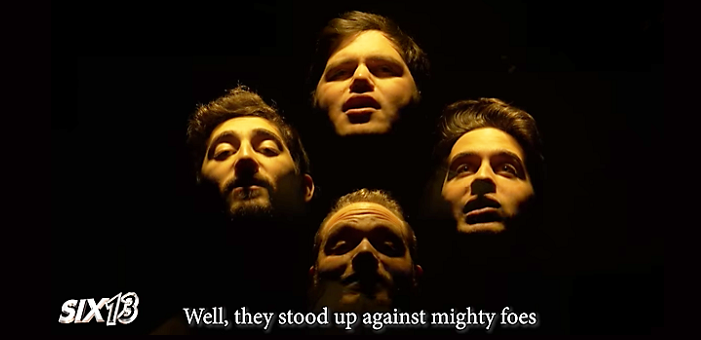All Jewish holidays begin with a good story. Passover depicts Moses facing off against Pharaoh, and Purim features Mordechai and Esther prevailing over the wicked Haman. Chanukah boasts a particularly compelling narrative with its epic tale of freedom versus tyranny. The underdog Maccabees managing to snatch victory from the jaws of defeat and the subsequent miracle of the oil is right up there with the Homeric Hymns or Shakespeare’s sonnets.
Like the mighty Hercules or Achilles, Judah Maccabee is on a hero’s journey. The Chanukah story has inspired a myriad of folktales, both ancient and modern. They are to be found collected in books, on the internet and in the collective memories of the Jewish people. Let us begin with the tale of Judah Maccabee.
The Chanukah story begins in 167 BCE, when the malevolent Greek Syrian King Antiochus demands the Jews in his domain assimilate to the Hellenistic norms of the Seleucid Empire. They are forbidden to study Torah or practice Judaism. While some Jews bowed to the king, Judah “The Hammer” Maccabee and his followers rose up. Judah was following in the footsteps of his father, Mattathias the High Priest, who was the first to resist idolatrous practices.
Against overwhelming odds, the Maccabees managed to score an impressive string of victories through guerilla warfare. The fighting culminated in a pitched battle with an army of professional soldiers and even trained battle elephants!
After an epic struggle the Maccabees defeated Antiochus and his soldiers. Victory, however, tasted like ash when the Jews discovered their desecrated Temple defiled with pig’s blood and altars to Greek gods. The Temple was cleansed and the damage repaired only for the Jews to discover there was but one day’s supply of oil to light the menorah. When that supply managed to last for eight days (long enough for more oil to be produced), the Temple was rededicated to G-d, and the Jews have commemorated the event forevermore. The word “Chanukah” means dedication.
The book Jewish Fairy Tale Feasts by Jane Yolen and Heidi Stemple is a great resource for Jewish parents. Ostensibly a Jewish cookbook, each recipe is paired with a folktale relating to a holiday. The book features a Chanukah tale called “The Latke Miracle.” The story concerns a poor widow and mother of seven children living in the shtetl. Chanukah is fast approaching, and she cannot afford flour for her potato latkes. The widow runs into an old man even poorer than she, who asks to be taken in for the evening. The widow obliges and what happens next is nothing short of a Chanukah miracle. The man mysteriously disappears; when the widow comes home, her children tell her of an old man who gave them Chanukah gelt and a bag of flour for latkes. Chanukah is saved!
The Orthodox Union website has a funny story from Israel, where sufganyot are much more popular than the humble latke. According to legend, after Adam and Eve were cast out from the Garden of Eden, G-d fed them sufganyot as a sort of consolation prize! The story derives from the word sufganyot broken down into the Hebrew sof, which means end, gan, which means garden, and the Hebrew letters yud and hey, which help spell the name of G-d (Yud hey vav hey). Together, sof-gan-yud-hey becomes “the end of the garden of the Lord or garden of Eden.”
The Polish city of Chelm, popularized in Judaica by Nobel Prize-winning author Isaac Bashevis Singer, is presented as a Jewish shtetl inhabited by well-intentioned fools. Two books, Chanukah in Chelm by David A. Adler and The Jar of Fools: Eight Chanukah Stories, by Eric A. Kimmel feature the curious village of Chelm. The dilemmas and morals in these tales are rooted in both the everyday and the sacred. They have been compared in structure to the Talmud and the Midrash, as they raise ethical questions and arguments and provide both silly fun and moral lessons. Don’t forget to read Kimmel’s classic Herschel and the Chanukah Goblins, yet another masterpiece from the undisputed king of children’s Chanukah books. When Chanukah is under attack by grumpy goblins, only Hershel of Ostropol can save the day. A mischievous trickster, Hershel employs cunning and guile to outwit the Chanukah goblins and trick them into celebrating Chanukah with him. A hero of Ukrainian folklore, Hershel of Ostropol was also an actual historic figure who lived during the late 18th and early 19th centuries.
Chanukah is best spent with friends and family. It is a time for hunkering down, as the cold winds of winter howl outside and the windows are faintly illuminated by the flickering glow of candles. There may be rain, sleet or snow falling. What could be better than curling up with a steaming hot plate of latkes, the kids and a good story? It is also a mitzvah to popularize the story of G-d’s miracle of the Chanukah lights. So this Chanukah, spread the word: read, discuss, laugh and love in the best tradition of the people of the book.






